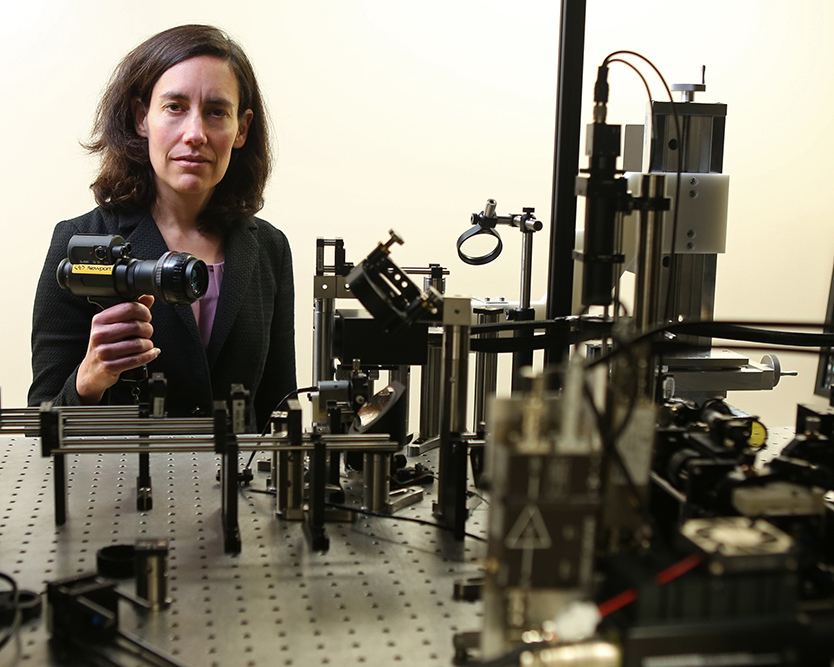Marquette biomedical engineering professor receives Way Klingler Sabbatical Award
This award will allow her to spend one academic year as a visiting researcher in the Advanced Ocular Imaging Program at the Eye Institute of the Medical College of Wisconsin.
MILWAUKEE — Dr. Taly Gilat-Schmidt, associate professor of biomedical engineering, is the recipient of this year’s Way Klingler Sabbatical Award.
Gilat-Schmidt has been at Marquette since 2006 and has spent her career researching and improving imaging technologies, specifically computed tomography.
This award will allow Gilat-Schmidt to spend one academic year as a visiting researcher in the Advanced Ocular Imaging Program at the Eye Institute of the Medical College of Wisconsin.
While at the AOIP, she will focus on developing algorithms to identify and analyze blood vessels in the retina and developing algorithms to statistically differentiate between photoreceptors and other image structures.
“This sabbatical will provide me the opportunity to understand the clinical and technological problem space and to research new image processing solutions,” Gilat-Schmidt said.
The Way Klingler Sabbatical Award is nominated annually by the Sabbatical Review Committee. The recipient receives his or her full salary, plus two additional months of summer pay and $10,000 to fund travel and expenses related to research conducted during the year-long sabbatical.
NOTE: This press release was submitted to Urban Milwaukee and was not written by an Urban Milwaukee writer. While it is believed to be reliable, Urban Milwaukee does not guarantee its accuracy or completeness.
Mentioned in This Press Release
Recent Press Releases by Marquette University
New Marquette Law School Poll finds large majority of Wisconsin voters not yet tuned in to who is running in major 2026 elections
Oct 29th, 2025 by Marquette UniversityNo candidate has established strong position in public favorability in governor, state Supreme Court races; large majorities of voters undecided
New Marquette Law School National Survey Finds Large Majority Think Political Violence is a Big Problem, But With Sharp Partisan Differences
Oct 1st, 2025 by Marquette UniversityAmericans are overall pessimistic on reducing intense political conflict; half of those polled say heated language by leaders makes violence more likely























